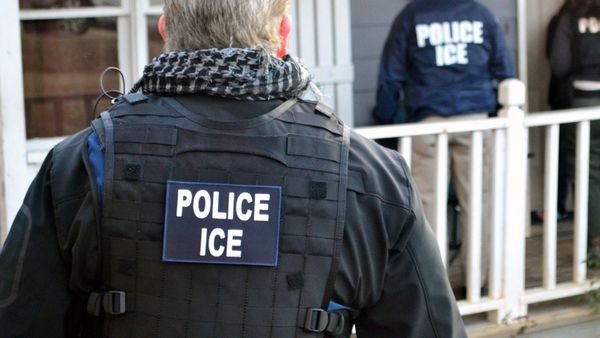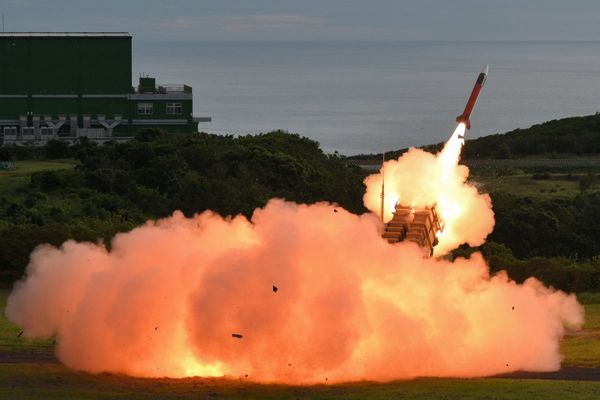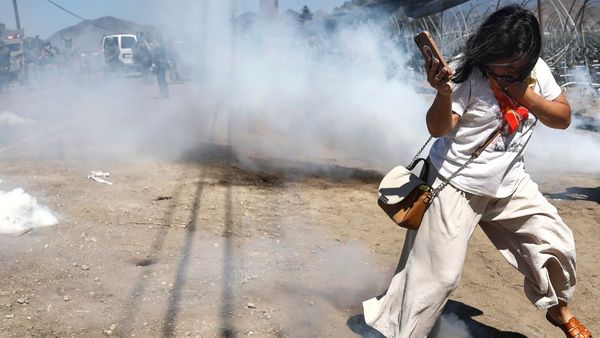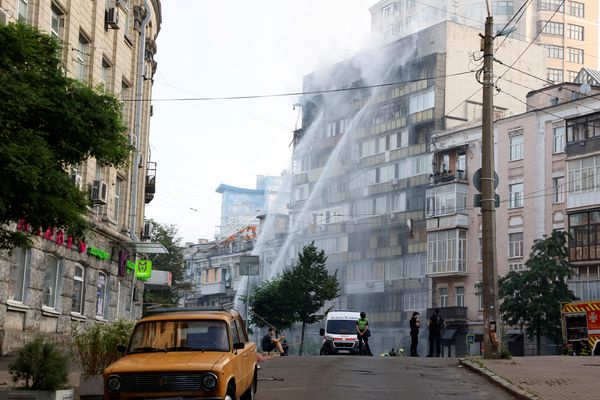
The US has flown five immigrants from Vietnam, Jamaica, Laos, Yemen and Cuba to the small, African country of Eswatini – an absolute monarchy with a troubling human rights record.
The move signals that the US is again ramping up so-called “third country” deportations after the US supreme court cleared the practice last month.
The US Department of Homeland Security announced the deportation on social media on Tuesday.
“A safe third country deportation flight to Eswatini in Southern Africa has landed,” Tricia McLaughlin, a DHS spokeswoman, wrote. “This flight took individuals so uniquely barbaric that their home countries refused to take them back.” She said each of the men had been convicted of serious crimes.
In a statement on Wednesday, a spokesperson for Eswatini confirmed that the men were being held in correctional facilities.
Eswatini, the only absolute monarchy in Africa, also confirmed that it had accepted the US deportees following “months of robust high-level engagements” with the US. The scope of Eswatini’s commitment to accept deportees was not immediately clear, though the Trump administration has been seeking to make deals with countries across the globe to accept immigrants that the US cannot easily deport to their home countries.
Though other administrations have conducted third-country removals, the Trump administration’s practice of sending immigrants to countries facing political and human rights crises have raised international alarm and condemnation.
The state department’s most recent human rights report on Eswatini, which has been ruled since 1986 by King Mswati III, points to “credible reports of: arbitrary or unlawful killings, including extrajudicial killings; torture and cruel, inhuman, or degrading treatment or punishment by the government”. There were credible reports that some political prisoners were tortured in detention, according to the state department. Prison conditions overall varied, though facilities were plagued with overcrowding, disrepair, poor nutrition and ventilation and unchecked prisoner-on-prisoner violence.
It is unclear how long the US deportees will remain in Eswatini. The acting government spokesperson, Thabile Mdluli, said that the men “will be repatriated to their respective countries” but will remain imprisoned in the mean time. Mdluli indicated Eswatini would work with the International Organization for Migration (IOM) “to facilitate the transit of the inmates to their countries of origin”.
The flight carrying deportees to Eswatini comes just days the US completed deportation of eight other immigrants to South Sudan – a country beset with political instability and a hunger crisis. Prior to landing in South Sudan, the deportees were diverted to a US military based base in Djibouti, where they had been held in a converted shipping container for weeks. More than 200 Venezuelan men that the Trump administration deported to El Salvador – most of whom had no criminal histories in the US – also remain incarcerated in the country’s notorious mega-prison, Cecot, where detainees have reported facing torture.
In late June, the US supreme court cleared the way for the administration to resume deporting migrants to countries other than their own without offering them a chance to show the harms they could face. The decision handed the government a win in its aggressive pursuit of mass deportations.
Earlier this month, a top Trump administration official said in a memo that immigration officials may deport migrants to countries other than their home nations with as little as six hours’ notice.
US immigration and customs enforcement (Ice) will generally wait at least 24 hours to deport someone after informing them of their removal to a so-called “third country”, according to a memo dated 9 July from the agency’s acting director, Todd Lyons.
Ice could remove them, however, to a so-called “third country” with as little as six hours’ notice “in exigent circumstances”, the memo said, as long as the person was provided the chance to speak with an attorney.
The memo stated that migrants could be sent to nations that have pledged not to persecute or torture them “without the need for further procedures”. The new Ice policy suggested the Trump administration could move quickly to send migrants to countries around the world.
Reuters and Agence France-Presse contributed reporting







